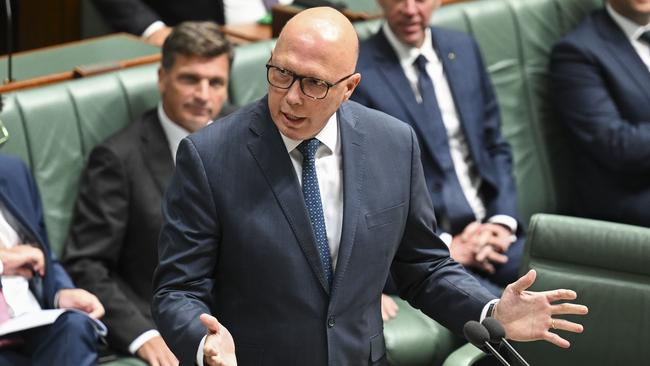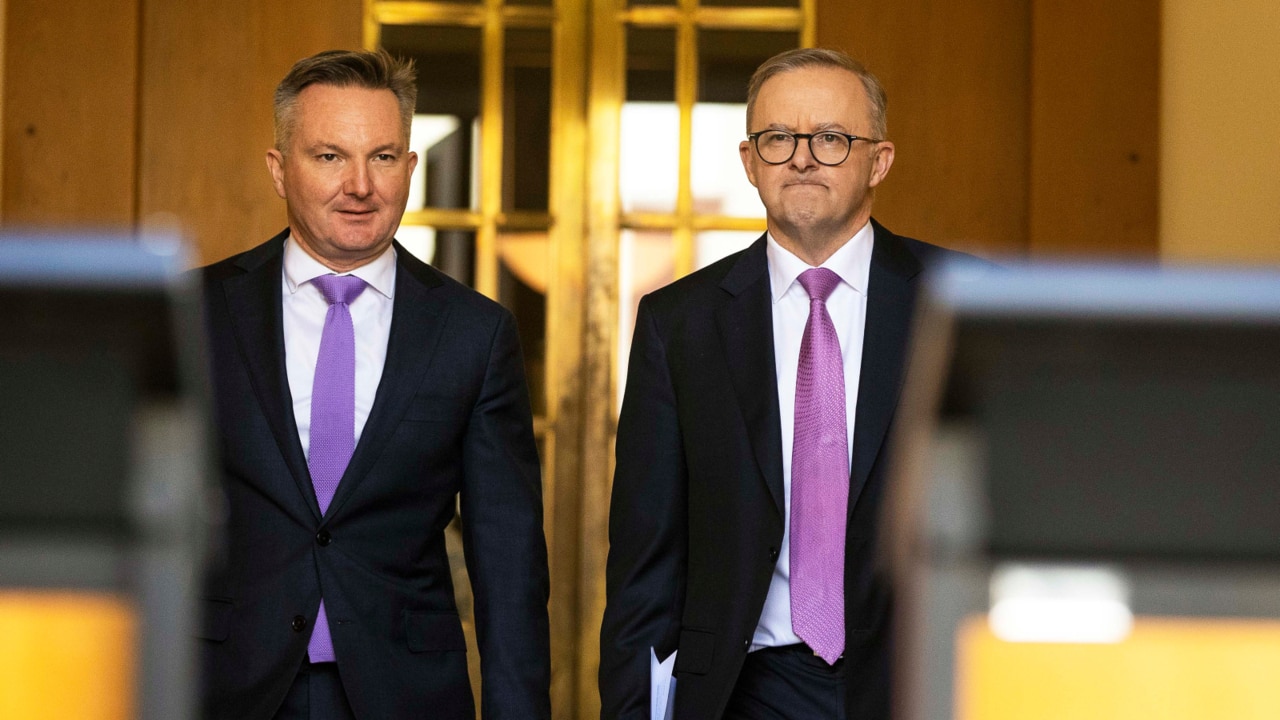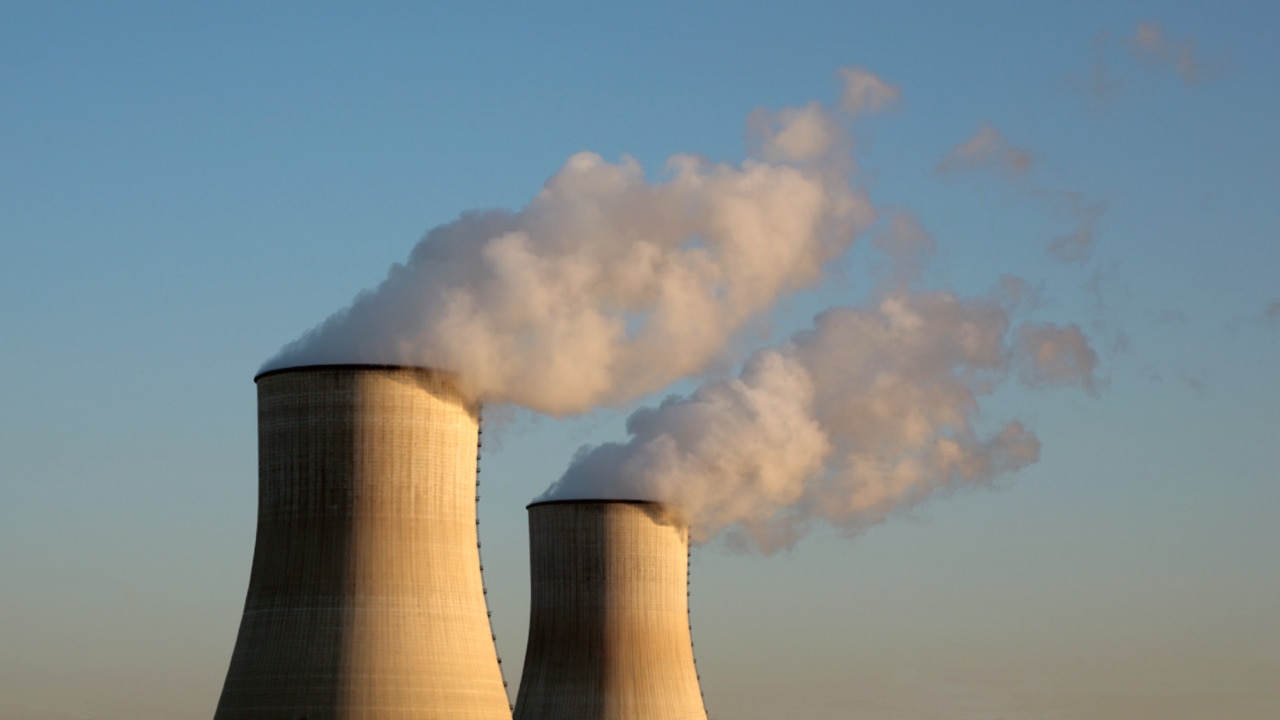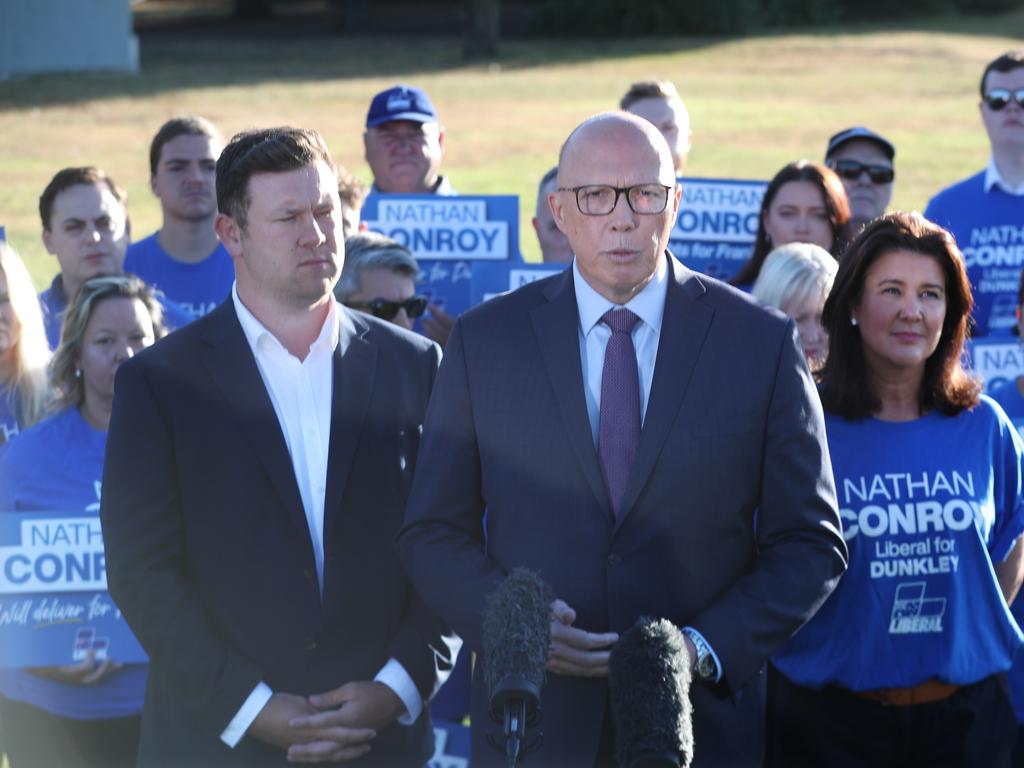Peter Dutton to unveil pre-budget nuclear power plan after Dunkley by-election loss
The Opposition Leader is set to unveil the Coalition’s signature energy policy, including a plan identifying potential sites for small modular nuclear reactors.

Peter Dutton will announce the Coalition’s signature energy policy before the May federal budget, including a plan identifying potential sites for small modular nuclear reactors as future net-zero power sources.
In the wake of the Dunkley by-election result which returned the seat to Labor against a 3.56 per cent swing, the Coalition will refocus its attack on the government’s contested path to net zero as part of a full-scale assault on Anthony Albanese’s handling of the cost-of-living crisis.
The Australian understands that the Opposition Leader will unveil plans for a nuclear-powered future as the first instalment of a pre-budget economic reform program ahead of the next election. The energy policy announcement will identify potential locations for small modular nuclear reactors and detail plans for safety standards, regulation and waste disposal.
It is understood the opposition will “be bold with policy, but not reckless” as it also begins a gradual rollout of economic policy, amid criticism it has failed to provide an alternative path to financial relief for households.
It comes as Liberal and National MPs are pushing for the rollout of bold reforms on housing, workplace relations, migration, tax and energy policy to cut through to voters in the wake of Labor’s victory at the Dunkley by-election.
The outcome was greeted by senior Labor figures with relief and widely viewed as a vindication of the party’s redesigned stage three tax cuts aimed at Middle Australia, with Mr Albanese flagging on Sunday further cost-of-living relief was being examined in the lead up to the budget.
“We’ll continue to look for what measures we can put in place,” the Prime Minister said. “We’ll have more measures in the budget. We work each and every day to do more.”
Deputy Prime Minister Richard Marles told The Australian it was an “extraordinary achievement” for Labor’s Jodie Belyea to have maintained the government’s primary vote in the by-election – raising questions about the effectiveness of the campaign run by right-wing activist group Advance, which urged voters to put Labor last.
With 11,000 postal votes still to count on Sunday night, the Labor primary vote had increased to a little more than 41 per cent – up from the 40.2 per cent at the 2022 election.
Ms Belyea used her victory speech on Saturday to reaffirm her relatability to working Australians and understanding of the cost-of-living crunch, declaring that she was not a professional politician but a “mum from Frankston with two dogs and a mortgage”.
But the opposition argued that if the result was replicated at the next federal election it would reduce Labor to minority government by stripping it of 11 seats, and pointed to the lift in their primary vote from 32.5 to 39 per cent as evidence the party had successfully re-engaged with the Liberal base.

Opposition finance spokeswoman Jane Hume said Dunkley, previously held on a margin of 6.3 per cent, was now one of the most marginal seats in Victoria and an “encouraging sign for us heading into a campaign to win it at the election”.
“For anyone in the Labor Party who is looking to run a victory lap for holding a seat they used to have above 6 per cent, I’d hope they’ve told their colleagues in Higgins, McEwen and Aston to start looking for other jobs,” she said.
Liberal candidate Nathan Conroy, the mayor of Frankston City Council since 2021, conceded defeat before 9pm on Saturday but added that “we’re coming for Albanese and his government”.
Before Saturday, the average swing against governments in by-elections since the start of the Hawke government, where both major parties ran a candidate, was 5.4 per cent.
Several Coalition figures acknowledged the 3.56 per cent swing against Labor was “not a great result” given inflation had come off its peak and “things won’t get any better for us”.
Liberal sources were concerned the government could now more easily sell a narrative of having “turned the corner” and would urge people to not “change captains” at the next election.
One Liberal MP said the focus on the released detainee who was originally thought to have reoffended in Victoria before police revealed he was wrongfully charged had “muddied the waters” for the party. “I don’t think it’s a win,” said one MP.
“I’d imagine Peter Dutton will want to do a bit of a reset,” said another.
A limited Coalition reshuffle is now expected in coming weeks to fill the roles of shadow cabinet secretary and opposition assistant Treasury secretary, with MPs arguing there is a need to start rolling out “brave” policy positions before Christmas in order to cut through to voters.
Victorian MP Keith Wolahan said the party should home in on delivering a compelling alternative housing policy, saying that: “Families in urban electorates are openly discussing the death of the Australian dream. Housing affordability requires more than business as usual.”
NSW Liberal senator Andrew Bragg – who is chairing a Senate inquiry into Australia’s retirement system – is exploring ways to inject greater flexibility into the superannuation system, including options like allowing older Australians to tap their retirement savings to help pay off their mortgages in addition to younger people using super to gain a foothold in the housing market.

He said there was a “major opportunity” for the Coalition to break new policy ground when the inquiry reported in June.
The Liberal deputy chair of the standing committee in economics, Garth Hamilton, said there was a need to adopt a strong policy on industrial relations and “wind-back” contentious Labor changes. “We’re going to have to address the problems that they’ve created in IR. We need to be clear on that,” he said.
Mr Hamilton also said the Coalition needed to be involved in the tax discussion “all the way through to the next election because people trust us on providing well designed and well thought-through tax policy”. Only the Coalition has pledged to take a further package of tax relief to the next election, but Mr Albanese has warned this would require the opposition to “go back to their old plan of big deficits”.
Senior Coalition sources said there was a need to make inroads in energy, small business and migration policy before the end of the year, while one MP questioned whether the opposition was willing to take any “big risks” and “till the soil on important policy issues”.
With another by-election in the southern Sydney seat of Cook looming within the next three months following the departure of former Liberal prime minister Scott Morrison, Liberal sources said they were reasonably confident of a good result.
Labor figures told The Australian on Sunday they were relieved by the by-election outcome, arguing that this was Mr Dutton’s chance to send the government a message, but that he had failed.







To join the conversation, please log in. Don't have an account? Register
Join the conversation, you are commenting as Logout